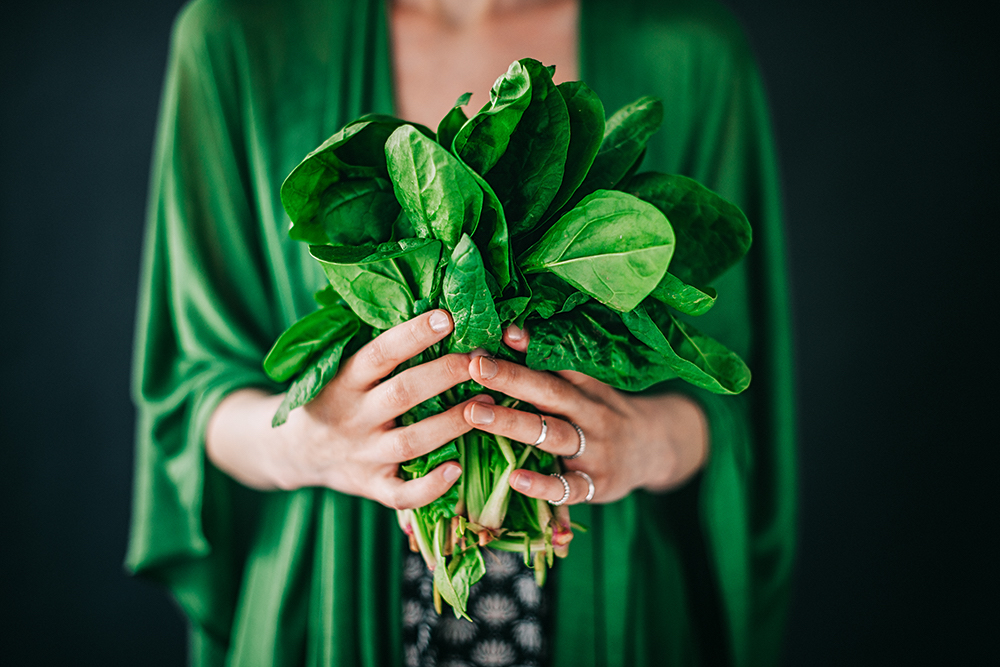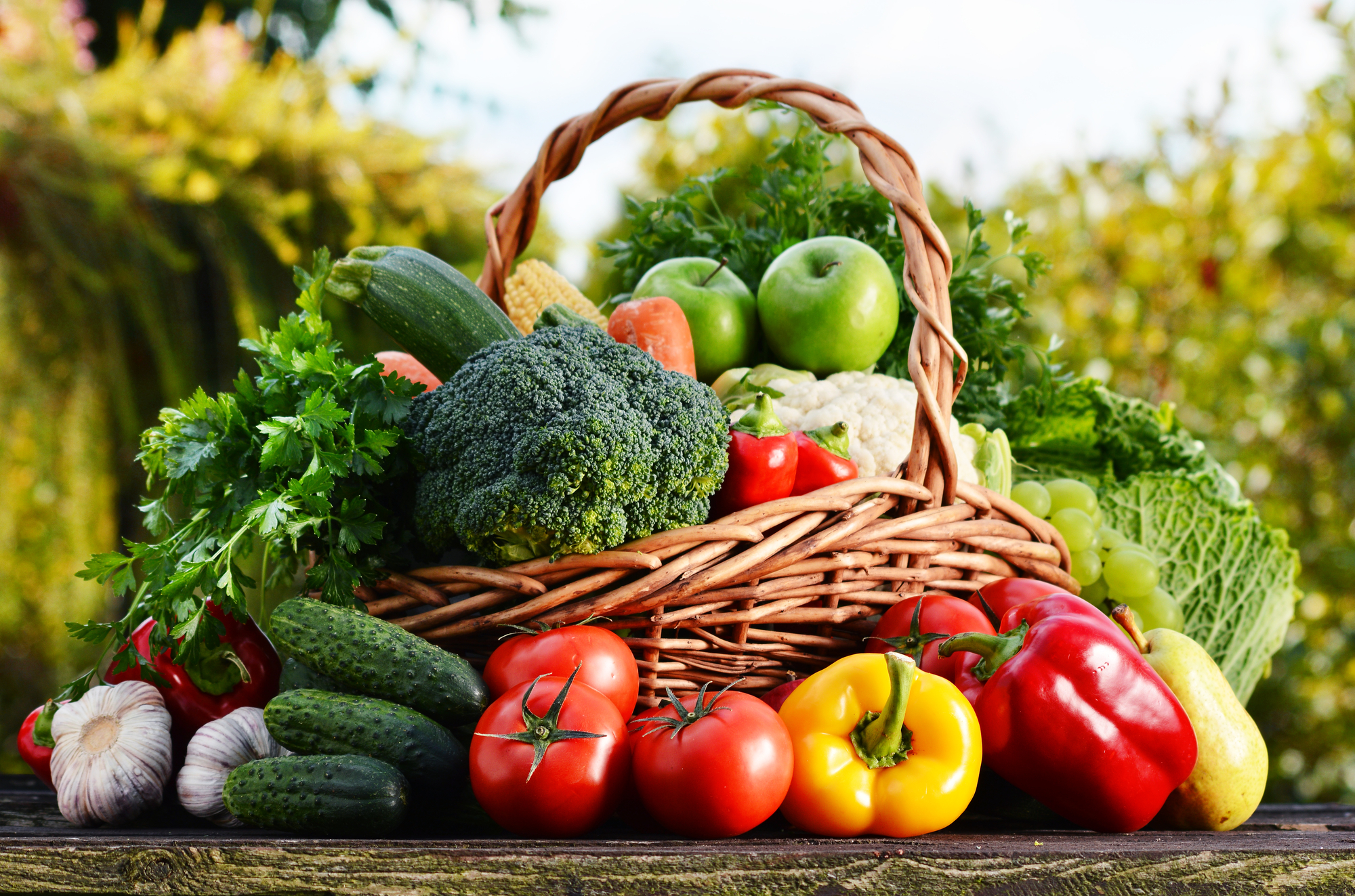Winter has arrived and with it comes the threat of cold and flu, COVID-19, and generally feeling under the weather.
During the cooler months, it’s more important than ever to make sure we look after ourselves and strengthen our immune system to ward off viruses and sickness.
With a focus on prevention, complementary medicine – including naturopathy, nutrition and Chinese medicine – offers many tools and practices to help us maintain health and wellness, especially during winter.

Here are five ways to prepare for winter, according to Chinese medicine principles – by Dr Shuai Zheng, the head of Chinese Medicine at Endeavour College of Natural Health.
- Wrap-up: In Chinese medicine, it is recommended that we dress warmly, particularly to protect the lower back (kidney region), midriff (digestive system), and neck (respiratory system), which are areas that are particularly prone to the winter cold.
- Sync sleep: Going to sleep as early as possible and waking up later means we can coordinate our daily rhythm with the warmth of the sun. Make sure to get enough sunlight throughout the day to recharge the body with the warmth of the sun.
- Warm-up: As cold contracts the body, it is important to do some exercise and stretches to keep the muscles elastic and strong. Winter is a time for gentle exercises such as walking, qi gong or tai chi. Yoga, Pilates or any other exercise that can be done at home or is sustainable during the cold, dark months, is also welcome. Remember to dry off sweat quickly after any vigorous exercise. As the temperature drops, sweat quickly turns cold and we become more vulnerable to illness.
- Comfort food: Eat warm hearty foods, like soups and stews. Add some spices to promote and move the energy in the body. Herbs and spices like cinnamon, nutmeg, clove, turmeric, ginger, curcumin, cardamon, coriander seed, fennel and cayenne pepper are all good ways to spice up meals. Bone broth looks promising for healing and supporting gut function, gastrointestinal lining, and is a good source of collagen and protein. Where possible, source fresh, local and in-season produce such as root vegetables, winter greens, onions, garlic, mushrooms, apples, kidney beans, pumpkin, cinnamon, ginger and shallots – foods which not only strengthen and promote energy movement within the body but also help strengthen lung and kidney function. Stay away from raw and cold foods as the digestive system becomes more sluggish in the cold and these foods can become hard to digest.
- Don’t overheat: Whilst it is great to stock up on warm and hearty foods, it is equally important to find the right balance and not overdo it. In Chinese medicine there is great emphasis on prevention and preparing for the next phase, which includes seasons. Therefore it is important to not “overindulge” the body with too much hot foods, especially towards the late parts of winter, as we will eventually emerge from the cold season and enter the warmer and more dynamic season of spring. Overdoing things in winter can cause unnecessary strain on the body as we adjust to the changes that come in spring, and in some cases the residual heat can cause breakouts and illness.
Here are five tips to strengthen immunity and support good health in winter, that Endeavour Short Courses Nutrition Instructor and Nutritionist Sophie Scott swears by.
- Reduce nutrient losses: The greater distance an out-of-season food has travelled, the less nutrients it is likely to contain. As soon as produce is picked, nutrients (particularly water-soluble Vitamins C and B) start to deteriorate due to heat, light and oxygen. If you want your food full of nutrients, it’s best to eat seasonally and also eat fresh produce – especially leafy greens – sooner rather than later. That spinach you’ve had in the fridge all week will only have 75% of its Vitamin C left by the time you get to it. Winter veggies include beetroot, broccoli, brussels sprouts, cabbage, carrots, cauliflower, celery, fennel, kale, leeks, onions, potatoes, pumpkin, silverbeet, spinach and sweet potato. In-season fruit includes apples, avocados, banana, dates, grapefruit, kiwifruit, lemons, mandarins, oranges, rhubarb and strawberries.
- Eat a rainbow: Include different coloured fruits and vegetables on your plate to make sure all the nutrients are covered. Each colour group offers unique health benefits. For example, orange foods are good sources of Vitamin A that helps support a healthy immune system. Try a nourishing roasted pumpkin and ham soup, snack on carrot sticks and hummus or serve up baked sweet potato alongside a good protein source like fish or beef for dinner. Veggies are jam-packed with essential vitamins and minerals, as well as phytochemicals and antioxidants, which support and strengthen the immune system. Go for a variety of colours each day and remember to incorporate these immunity champions on a regular basis: garlic, onions, ginger, chilli, cruciferous veggies such as broccoli, cauliflower and cabbage, as well as fruits like apples, oranges and rhubarb.
- Don’t forget frozen: Eating frozen, dried, or canned foods like beetroot, peas and berries is a great way to add variety to a winter diet. Freezing can significantly slow nutrient losses, so frozen fruit and veggies may contain more nutrients than fresh in some cases.
- Pump up the vitamins: Vitamin C is an essential micronutrient that’s abundant in fruit and vegetables. The Australian Recommended Daily Intake (19–50-year-olds) is 45 mg per day, which can be achieved by eating one orange or half a cup of strawberries. Red capsicum, kiwi fruit, blackcurrants, guava, parsley, pawpaw, tomatoes, sweet potatoes, broccoli and potatoes are also high in Vitamin C. As only small amounts of Vitamin C are stored in the body, we need to tuck into foods high in this vitamin every day. Other essential micronutrients for immunity include Zinc (found in oysters, beef, pumpkin seeds, eggs and whole grains), Magnesium (leafy greens, almonds, barley, cashew nuts, cocoa and figs) and Vitamin A (carrots, dark leafy greens, liver, milk and yoghurt).
- Love your gut: 70 per cent of the body’s immune cells live in the gut, so gut health is paramount to our overall well-being. To foster good gut health, it’s important to eat prebiotic-rich foods. Prebiotics are a type of dietary fibre, typically found in plant-based foods like asparagus, bananas, apples, oats, leeks, onions and garlic, that serve as a food source for beneficial bacteria (probiotics) in the gut. It can be tempting to reach for sweet treats, like chocolates and biscuits when curled up on the couch but remember, too much-refined sugar can cause havoc to the gut, so do some “food pairing”. Go for fruit like grapes, figs or dried apricots alongside a row of chocolate to fulfil those sugar cravings. Gut bacteria especially love dark purple, red and blue fruit and vegetables as they are rich in anthocyanins (a group of powerful antioxidants) so eat lots of berries, red apples, black grapes, purple carrots, red potatoes, red cabbage, red onions and red lettuce. Consuming fermented foods, particularly kefir and yoghurt can also support the health of your gut flora.

Here are five supplements* for winter immunity that Endeavour College of Natural Health naturopathy lecturer Fin Mackenzie always has on hand.
- Echinacea: Also known as purple coneflower, echinacea is a very well-known, researched and effective herb to both prevent and treat viral and bacterial infections including colds and flus. It can assist to boost our immune system, in particular the white cells which can help us become more resilient to infections, especially in the wintertime. It also works to protect our throats when the glands may become inflamed or for treating a painful sore throat. Traditionally herbalists like echinacea to ‘touch the throat’ to have an effect therefore a liquid fluid extract is advised but echinacea is also effective taken in a good quality herbal tablet. A meta-analysis showed that echinacea may reduce the chance of catching a cold and may reduce the duration of having a cold.
- Elderberry: Elderberries are high in vitamin C and pack a punch when it comes to immunity and assisting with colds and flus. It’s one of most researched herbs and has been shown to be effective against viral infections. The little-known berry skyrocketed to fame when Miranda Kerr touted its benefits during the pandemic. Elderberry comes in a sugar free natural syrup (glycetract) as well, which children love.
-
Propolis: Produced as a by-product of honey production, bees use this sticky substance to coat the inside of the hive and it does the same thing in our throat, reducing the likelihood of bacteria taking hold or infecting the host, which may protect against catching a virus. It’s also valued for its antimicrobial, antiviral and antifungal properties, which have been shown to be effective against viruses like influenza. It may also be useful for sore throats, ear infections and any mild upper respiratory tract infection.
- Vitamin C: Vitamin C is one of the most popular supplements in the world. For the best impact against a cold or flu, try liposomal formulations of Vitamin C which have been shown to improve absorption – up to 93 per cent compared to 17 per cent for regular Vitamin C capsules.
- Vitamin D: It has long been known that Vitamin D is useful when it comes to immunity but it’s estimated that 30-50 per cent of us could be deficient. Sufficient vitamin D can be obtained by spending some time outside each day, or supplements are available when lacking sunshine.
*Always seek the advice of a health practitioner and speak to your Naturopath before self-prescribing herbal medicine, especially if you are taking any other medication.
Learn more about Chinese medicine, natural remedies, nutrition, gut health and how to live well using complementary medicine practices in new short online courses at Endeavour Short Courses, or a range of natural health courses at Endeavour College of Natural Health.








